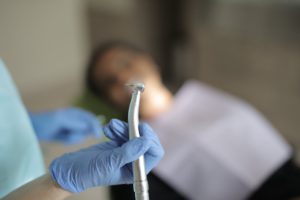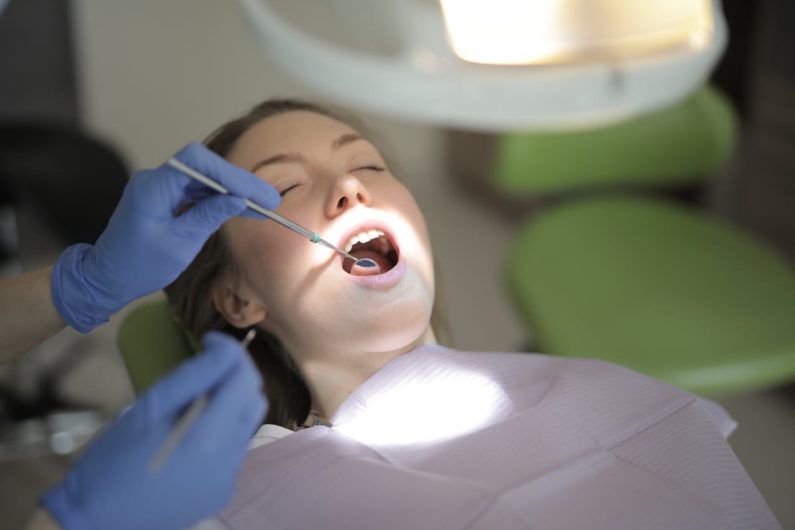Dental anxiety affects millions of individuals worldwide, causing apprehension, fear, and avoidance of dental visits. For some, the mere thought of sitting in the dentist’s chair triggers intense panic and distress. However, there is a beacon of hope for those grappling with dental anxiety: sleep dentistry. This article explores how sleep dentistry alleviates dentist anxiety and empowers patients to prioritise their oral health without fear or discomfort.
Dental anxiety is a common phenomenon that can stem from various factors, including past traumatic experiences, fear of pain, embarrassment, or loss of control. Regardless of its origin, dental anxiety can have detrimental effects on oral health, leading to delayed or neglected dental care, which in turn can exacerbate dental issues and compromise overall well-being.
Enter sleep dentistry, or sedation dentistry, is a specialised approach designed to help patients relax and feel at ease during dental procedures. Unlike traditional dental visits that may induce anxiety or panic, sleep dentistry offers a tranquil experience by administering sedatives to induce a state of deep relaxation or sleep. This allows patients to undergo dental treatments without experiencing the stress or discomfort of dental procedures.
One of the primary benefits of sleep dentistry is its ability to manage and mitigate dental anxiety effectively. By inducing a state of relaxation, sedation dentistry helps patients overcome their fears and apprehensions, allowing them to receive the dental care they need without experiencing heightened stress or discomfort. This is particularly beneficial for individuals with severe dental anxiety or phobias who may otherwise avoid seeking dental treatment altogether.
Moreover, sleep dentistry offers a range of sedation options tailored to each patient’s unique needs and preferences. Sleep dentistry provides flexibility and customisation to ensure optimal comfort and safety, from mild sedatives to induce a sense of calm and relaxation to more profound sedation techniques that render patients utterly unaware of their surroundings. This personalised approach empowers patients to choose the level of sedation that best suits their comfort levels and allows them to undergo dental procedures with confidence and peace of mind.
Another advantage of sleep dentistry is its minimisation of discomfort and pain during dental procedures. Sedatives administered during sleep dentistry not only induce relaxation but also have analgesic properties, effectively numbing sensations of pain or discomfort. This ensures a more comfortable and pleasant experience for patients undergoing dental treatments, reducing the likelihood of post-procedural discomfort or soreness.
Furthermore, sleep dentistry can significantly improve the efficiency and effectiveness of dental procedures by promoting patient cooperation and compliance. By keeping patients relaxed and still throughout the procedure, sleep dentistry allows dentists to work more efficiently and accurately, resulting in better treatment outcomes and reduced treatment times. This is particularly advantageous for complex or lengthy procedures that require precision and attention to detail.

Moreover, sleep dentistry promotes a positive association with dental care, helping to break the cycle of avoidance and fear that often characterises dental anxiety. By offering a calming and stress-free experience, sleep dentistry can gradually reshape patients’ perceptions of dental visits, transforming them from dreaded appointments into manageable and enjoyable experiences. This shift in mindset can have profound long-term effects on oral health, encouraging regular dental check-ups and proactive treatment, ultimately leading to improved dental outcomes and overall well-being.
Sleep dentistry is not just reserved for individuals with dental anxiety; it can also benefit patients with various other conditions or circumstances that may make traditional dental visits challenging. Patients with special needs, sensory sensitivities, or difficulty sitting still for extended periods can all benefit from the calming effects of sleep dentistry, allowing them to receive necessary dental care in a comfortable and supportive environment. This inclusivity ensures that all patients, regardless of their unique challenges or circumstances, have access to quality dental care without barriers or limitations.
Sleep dentistry fosters a collaborative and patient-centred approach to dental care, where the individual’s needs and preferences are prioritised above all else. Dentists trained in sleep dentistry take the time to listen to their patients’ concerns, address any fears or anxieties, and tailor treatment plans accordingly. This patient-centric approach fosters trust, communication, and mutual respect between dentist and patient, laying the foundation for a positive and enduring dental relationship built on understanding, empathy, and partnership.
In conclusion, sleep dentistry offers a promising solution for individuals grappling with dental anxiety, providing a tranquil experience that alleviates fear, discomfort, and stress associated with dental visits. Sleep dentistry empowers patients to prioritise their oral health without letting anxiety hold them back by inducing a state of relaxation, managing pain, and enhancing patient cooperation. As awareness of sleep dentistry continues to grow, more individuals are discovering the transformative benefits of this innovative approach, reclaiming their smiles and confidence one dental visit at a time.

